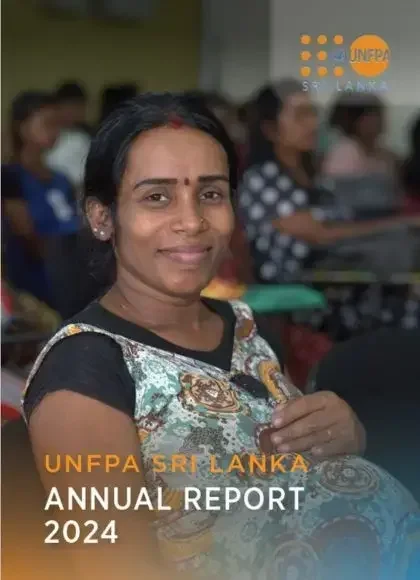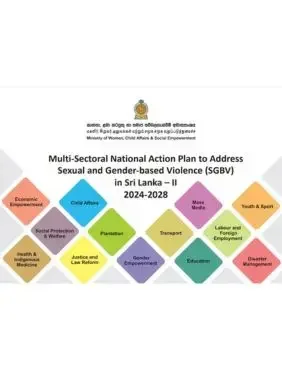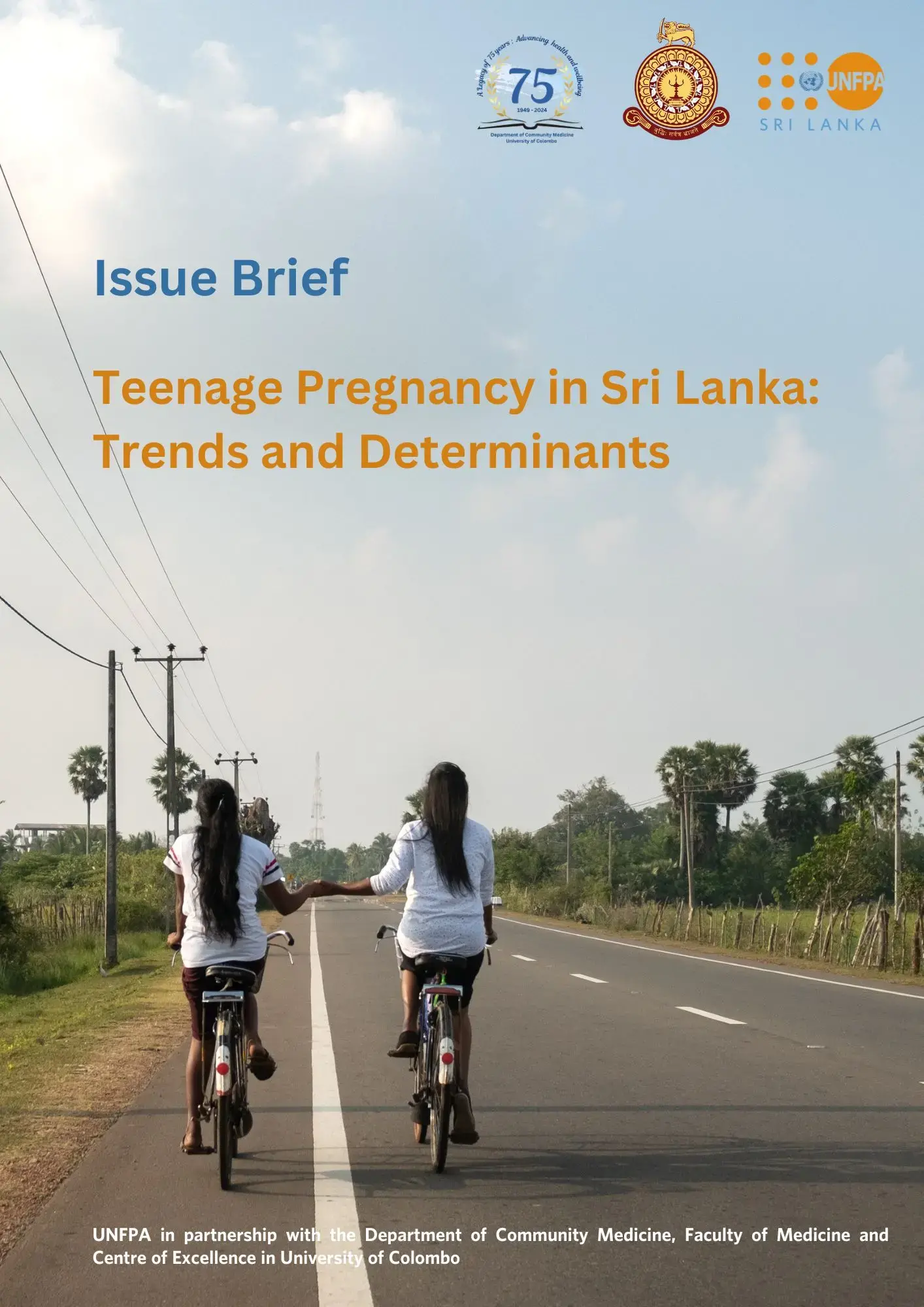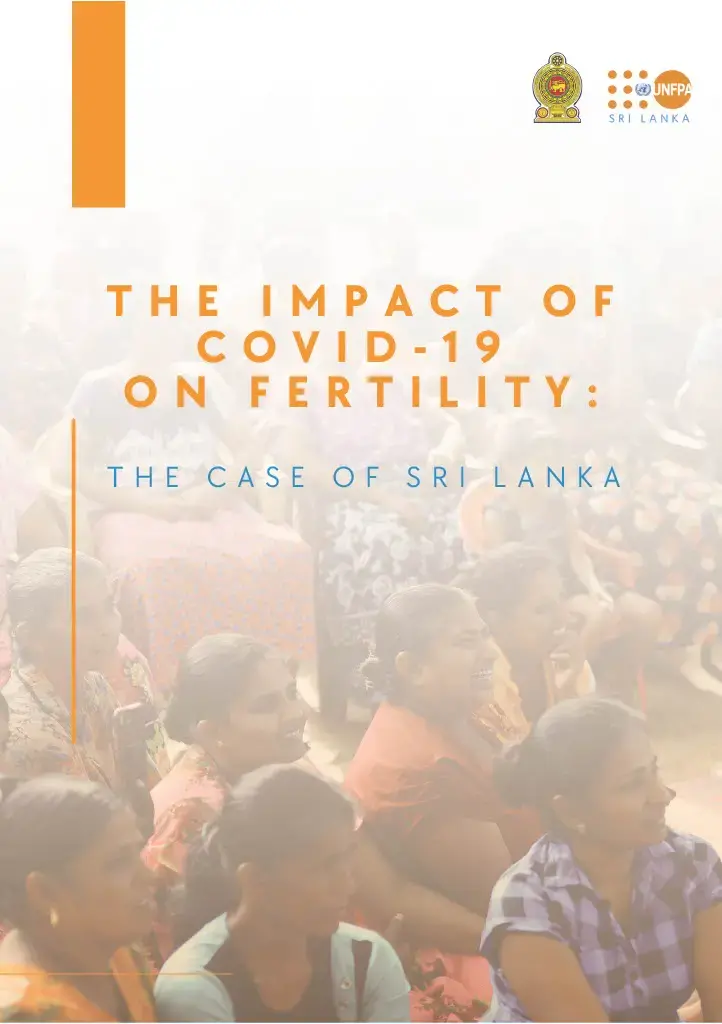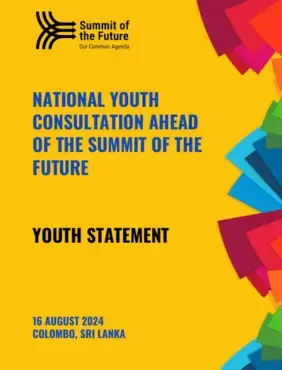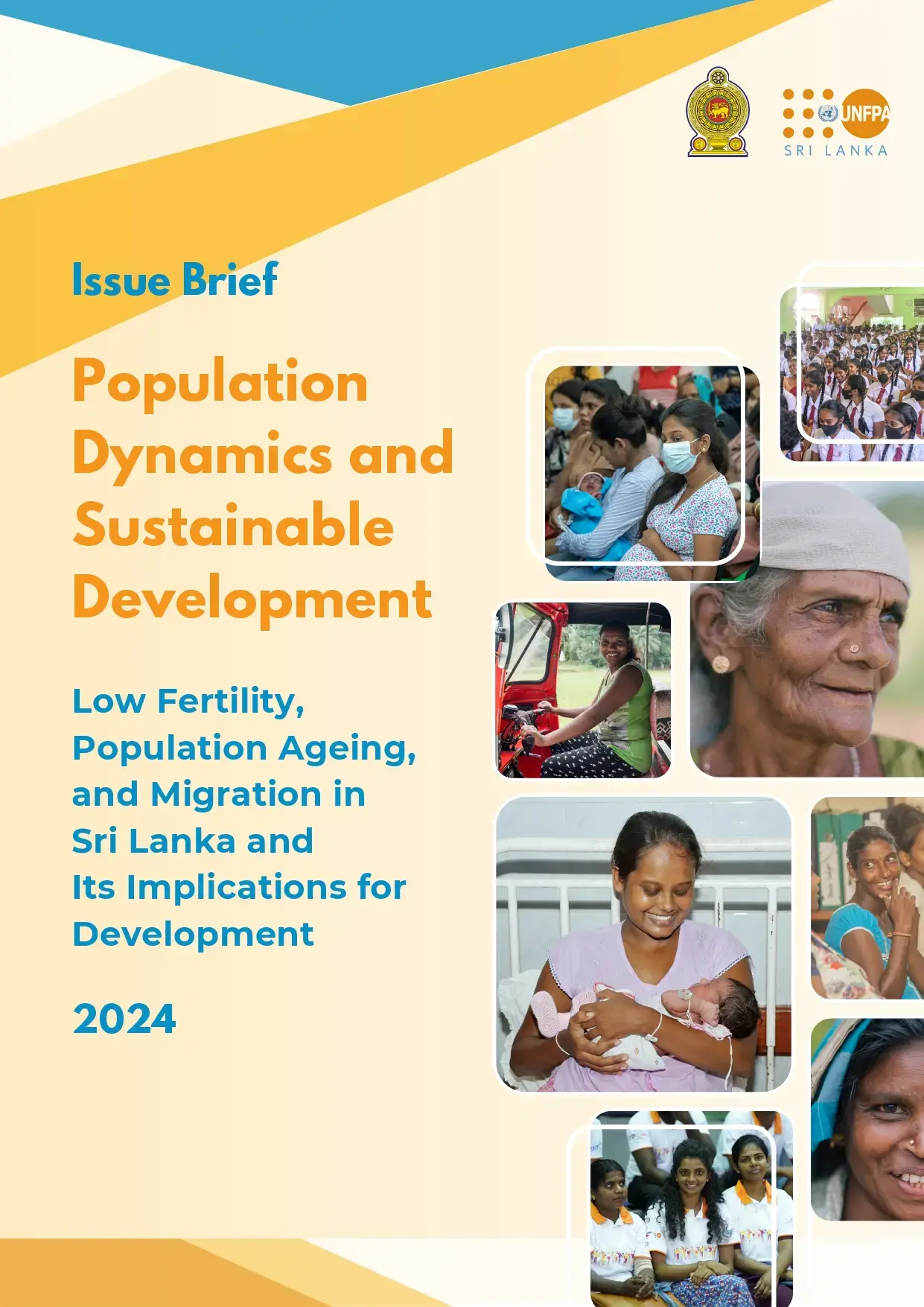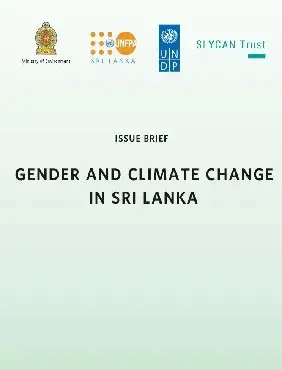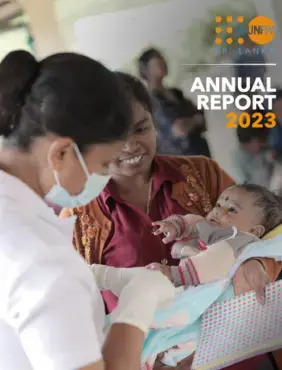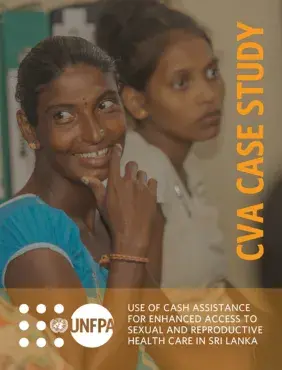Publications
Publications
Annual Report
UNFPA Sri Lanka Annual Report 2024
As the United Nations' agency for sexual and reproductive health, UNFPA Sri Lanka has been active since 1969, contributing to global progress. In 2024, UNFPA persisted in its co...
Read more
Publication
Policy Framework and Multi-Sectoral National Action Plan to address Sexual and Gender-Based Violence (SGBV) in Sri Lanka 2024-2028
The Multi-sectoral National Action Plan to Address Sexual and Gender-Based Violence (SGBV) in Sri Lanka 2024-2028 is an outcome of a comprehensive and consultative process led by t...
Read more
Publication
Teenage Pregnancy in Sri Lanka: Trends and Determinants
UNFPA in partnership with the Department of Community Medicine, Faculty of Medicine and Centre of Excellence in University of Colombo
Read more
Technical Reports and Document
The Impact of COVID-19 on Fertility: The Case of Sri Lanka
The publication titled 'The Impact of COVID-19 on Fertility: The Case of Sri Lanka' by Emeritus Professor Lakshman Dissanayake, delves into the profound effects of the COVID-19 pan...
Read more
Declarations and Statement
National Youth Statement for the Summit of the Future 2024
As part of Sri Lanka's commitment to empowering its youth and driving global change, the National Youth Consultation was organized ahead of the UN Summit of the Future by UN Sri La...
Read more
Technical Reports and Document
Population Dynamics and Sustainable Development: Low Fertility, Ageing, and Migration in Sri Lanka and Implications for Development
Sri Lanka faces a complex interplay of demographic changes, including low fertility, population ageing, and significant migration patterns. Understanding these demographic changes ...
Read more
Publication
Gender and Climate Change in Sri Lanka
Climate change affects and impacts human lives and livelihoods in myriad ways. Extreme weather events, long term processes, and compound or covariate risks already pose severe thre...
Read more
Annual Report
UNFPA Sri Lanka Annual Report 2023
The United Nations Population Fund (UNFPA) in Sri Lanka has taken steps to enhance the resilience of the entire Sri Lankan population in the face of ongoing socioeconomic chal...
Read more
Publication
Case Study: UNFPA's Cash Assistance Initiative Amidst Sri Lanka's Socio-Economic Crisis
From July to September 2023, UNFPA Sri Lanka, supported by the Government of Australia, provided cash assistance to over 50,000 beneficiaries. This initiative aimed to ensure acces...
Read more

